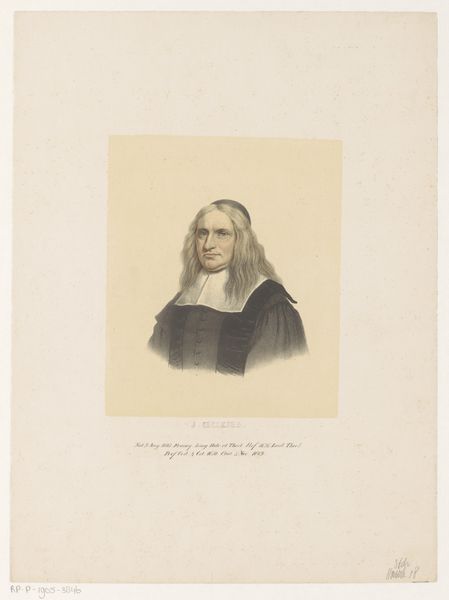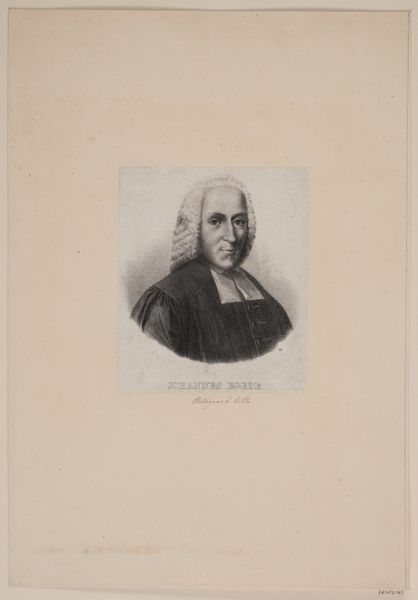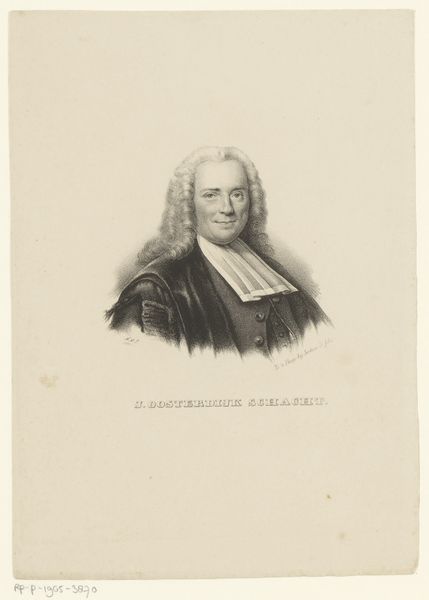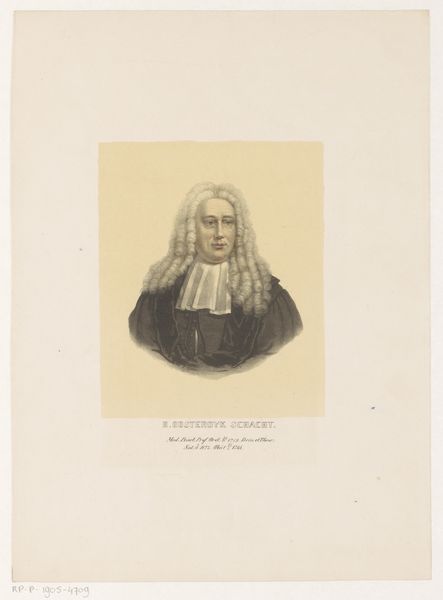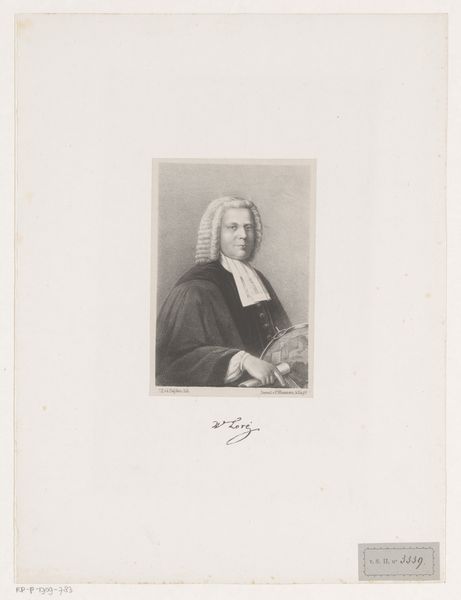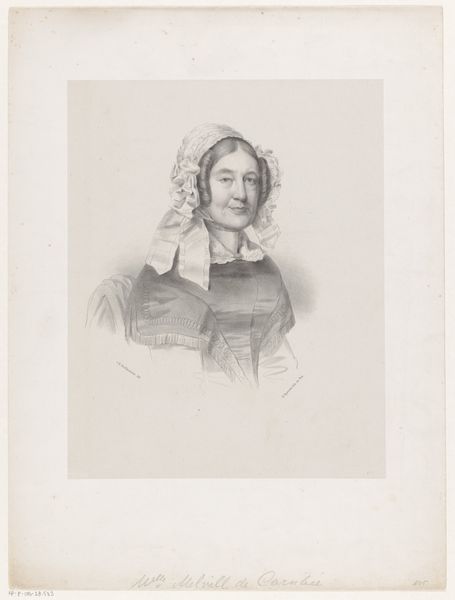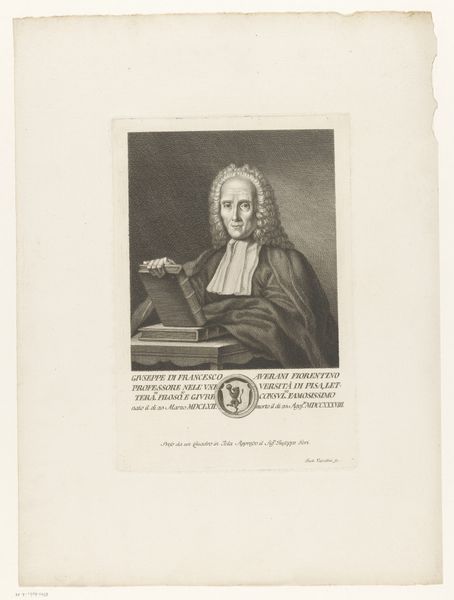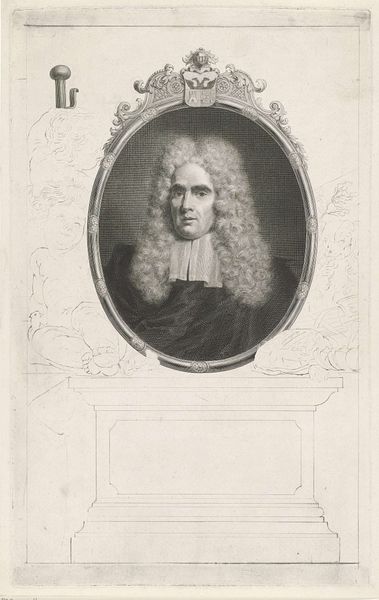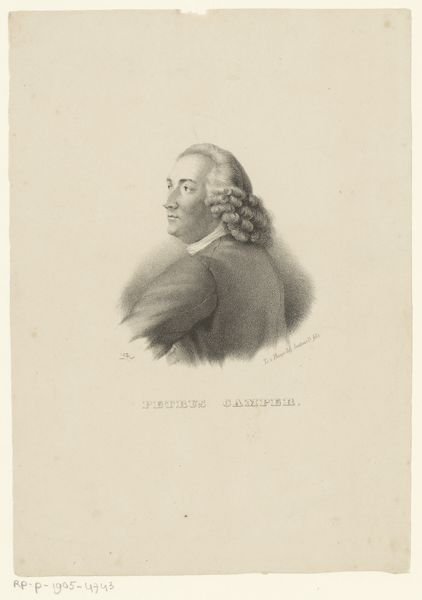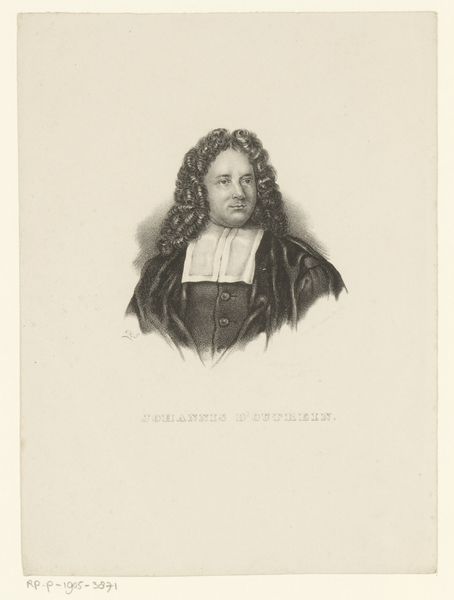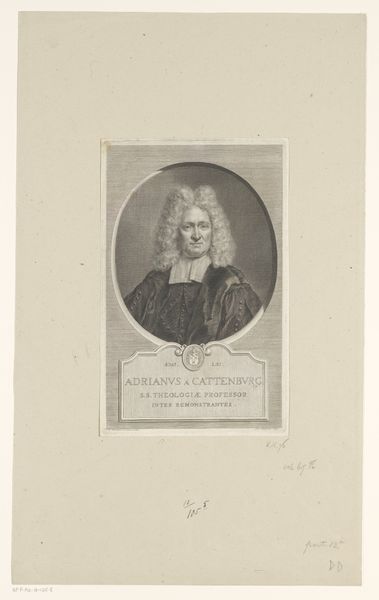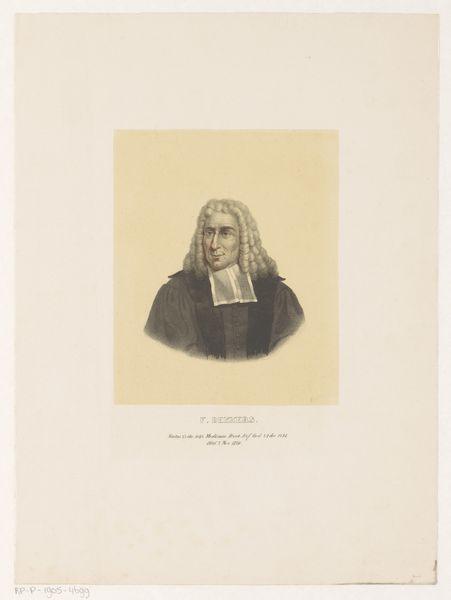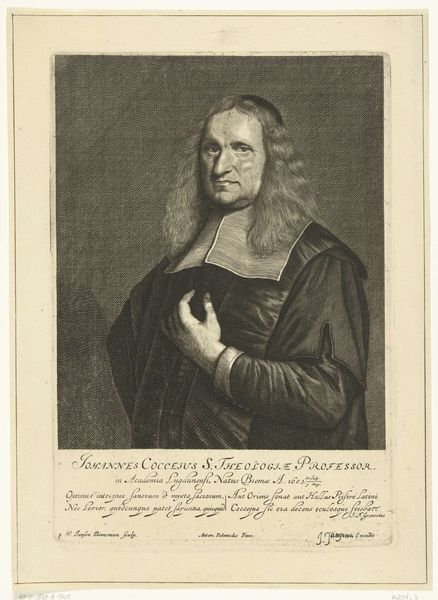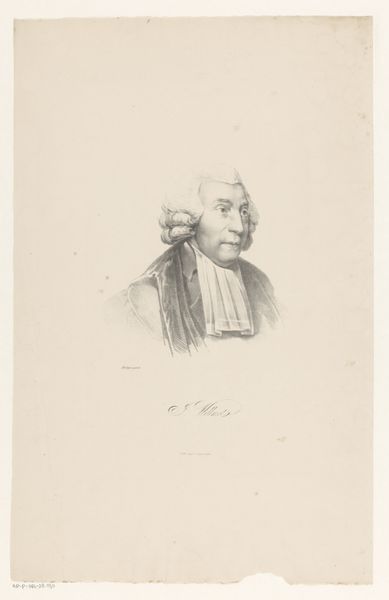
drawing, engraving
#
portrait
#
pencil drawn
#
drawing
#
16_19th-century
#
charcoal drawing
#
pencil drawing
#
portrait drawing
#
engraving
#
realism
Dimensions: height 220 mm, width 160 mm
Copyright: Rijks Museum: Open Domain
This is a portrait of Johannes Coccejus made by N.M. Schild, and held at the Rijksmuseum. The artwork is an engraving, a printmaking technique where an image is incised onto a plate, often made of copper, which then holds ink and transfers the design to paper. The engraver meticulously carves lines into the metal, a physically demanding process that requires great skill and precision. The fineness of the lines and the subtle gradations of tone suggest a mastery of the craft. The choice of engraving as a medium is significant; it was a method of image production that allowed for multiple copies, playing a crucial role in disseminating knowledge and portraiture during the period. The labor-intensive nature of engraving also speaks to the value placed on craftsmanship and the detailed representation of the subject. Considering the social context, this portrait reflects the rise of print culture and the demand for accessible imagery, linking artistic practice to broader networks of labor, technology, and consumption. Appreciating the work involved in this portrait challenges traditional notions of art, drawing attention to the skilled craft inherent in its creation.
Comments
No comments
Be the first to comment and join the conversation on the ultimate creative platform.
